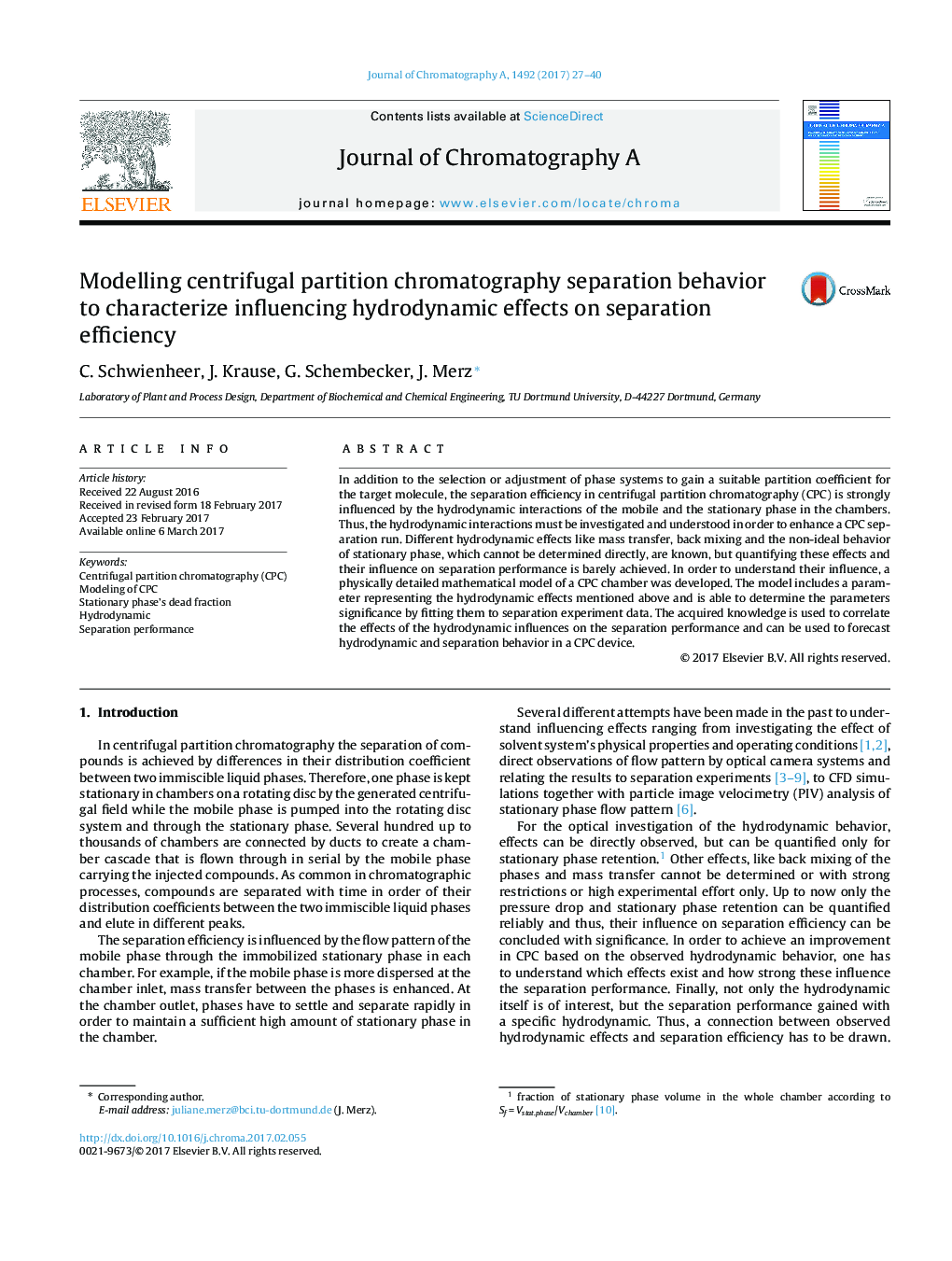| Article ID | Journal | Published Year | Pages | File Type |
|---|---|---|---|---|
| 5135590 | Journal of Chromatography A | 2017 | 14 Pages |
â¢Modeling of centrifugal partition chromatography.â¢Hydrodynamic investigation of flow pattern.â¢Investigation and quantification of mass transfer, back mixing and dead zone in stationary phase.â¢Evaluation of hydrodynamic effects on separation performance.
In addition to the selection or adjustment of phase systems to gain a suitable partition coefficient for the target molecule, the separation efficiency in centrifugal partition chromatography (CPC) is strongly influenced by the hydrodynamic interactions of the mobile and the stationary phase in the chambers. Thus, the hydrodynamic interactions must be investigated and understood in order to enhance a CPC separation run. Different hydrodynamic effects like mass transfer, back mixing and the non-ideal behavior of stationary phase, which cannot be determined directly, are known, but quantifying these effects and their influence on separation performance is barely achieved. In order to understand their influence, a physically detailed mathematical model of a CPC chamber was developed. The model includes a parameter representing the hydrodynamic effects mentioned above and is able to determine the parameters significance by fitting them to separation experiment data. The acquired knowledge is used to correlate the effects of the hydrodynamic influences on the separation performance and can be used to forecast hydrodynamic and separation behavior in a CPC device.
